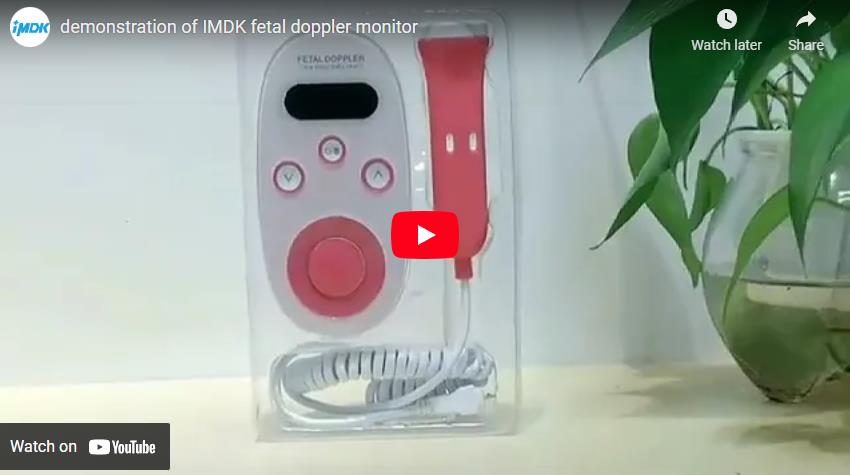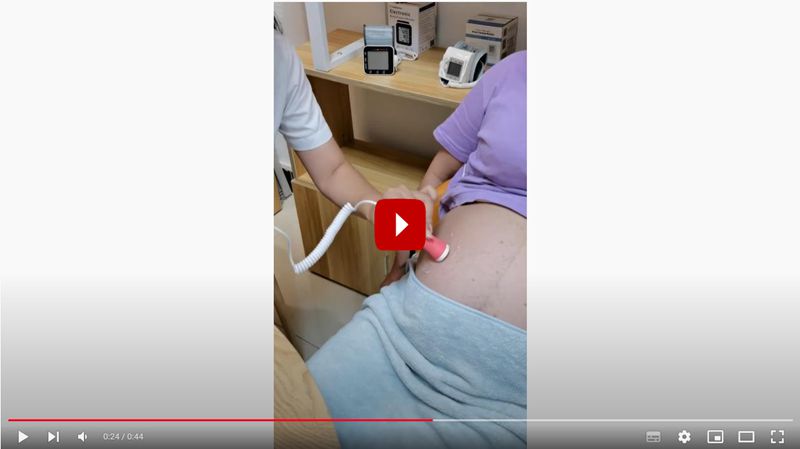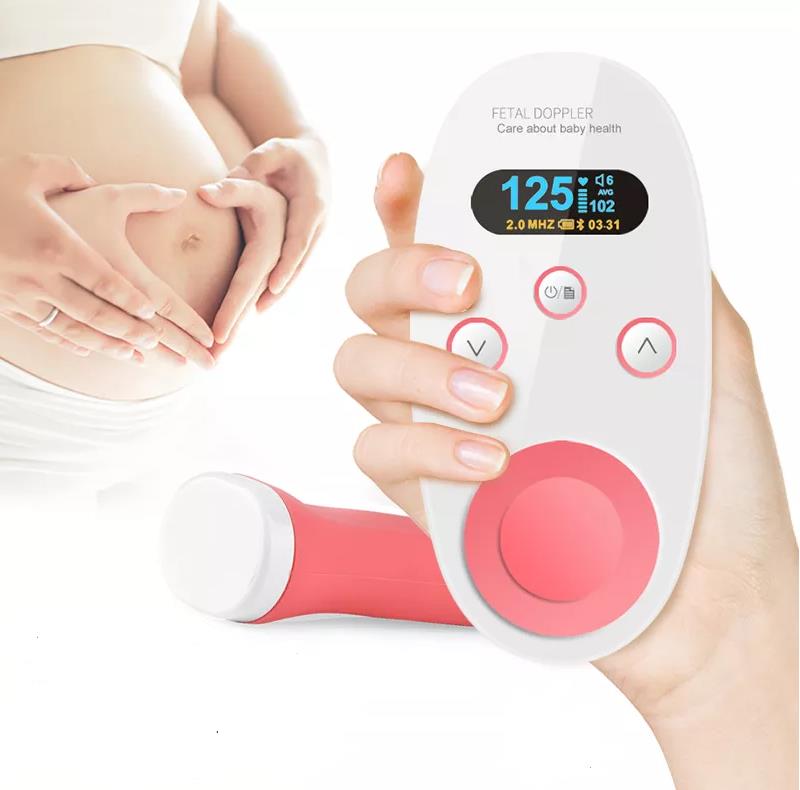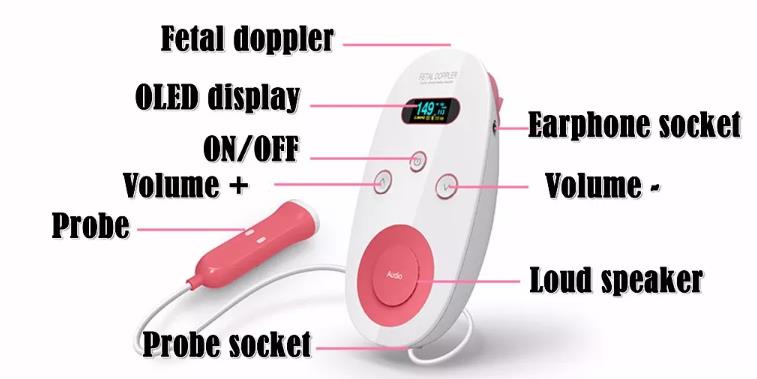Basic knowledge about a fetal doppler:
A fetal doppler is a type of ultrasound device that is used to detect fetal heartbeat via sound waves. As a necessary part of routine prenatal care, midwives or healthcare providers may use fetal dopplers at the end of the first trimester of pregnancy. Currently, with the emergence of small and handheld fetal dopplers, more and more fetal dopplers have already been sold over the counter for home use. And at-home fetal dopplers have been appealing to more and more parents-to-be. Understandably, when parents can monitor their baby’s heartbeat from time to time, they feel more reassured.
Although exposing a baby to ultrasound waves is a thing that needs to be treated with caution, the very idea of being able to care about a baby’s health from the comfort of home is so tempting for mothers-to-be; after all, it is inconvenient for pregnant women to visit a health care provider. Anyway, as long as a fetal doppler is used in moderation, it is believed to be safe.
IMDK fetal doppler:










Model No: T9
Material: plastic+ABS
Temperature For Working: 10ºC ~+ 40ºC ( +50ºF ~ +104ºF)
Relative Humidity For Working: 15% RH ~ 85% RH
Atmospheric Pressure For Working: 70kPa ~ 106kPa
Temperature For Transport And Storage: -20ºC ~ +55ºC (-4ºF ~ +131ºF)
Relative Humidity For Transport And Storage: 10% RH ~ 95% RH
Atmospheric Pressure For Transport And Strorage: 58kPa ~ 106kPa
Power Supply: 1.5V AA alkaline batteries*2
FHR(Fetal Heart Rate) Resolution: 1bpm
FHR Measurement Range: 50~210bpm
Accuracy For FHR: ±2bpm
Auto Shut Off: after 1 minute or 3 minutes no signal
Normal Frequency Of Ultrasound: 2MHz
Working Frequency Of Ultrasound: (2.0 ± 5%)MHz
Effective Radiating Area Of Probe: 157mm²±30%
Product demonstration:

This video is an on-spot test that will give you a more intuitive effect; you will find it so easy to use our fetal dopplers.

Functions and features:
- Two display modes: numerical mode and curve mode.
- Two-color (blue and yellow colors) OLED screen gives you clear readings, even though you use it in the dark night.

- All-in-one design with a streamlined appearance provides a good user experience.
- You can carry this compact, handheld device around whenever you like.
- It offers a glanceable display of signal strength so that you will easily find which spot is best for measuring the fetal heart rate.
- It adopts the autocorrelation algorithm to process doppler signals; as long as your pregnancy lasts for more than 12 weeks, the fetal heart rate can be detected.
Just like other types of fetal monitors, this device also adopts the advanced DSP (digital signal processing) technology and FHR (fetal heart rate) algorithm to ensure the accuracy and reliability of measured results.
The comparison chart shows the optimized algorithm significantly reduces noise interference and increases the chance of detecting fetal heart sounds.

- With the pulsed doppler ultrasonic system as well as the single chip microcomputer that uses high-sensitivity 2MHZ probes, the intensity of ultrasound is considerably lower than the safety standards; so you can monitor the baby in your womb more safely.
- The fetal heart sounds that you can hear can be adjusted on a scale of 1~7.

Frequently Asked Questions:
- “Does it come with ultrasound transmission gel?”
In general, we just sell fetal dopplers; after all, the gel belongs to liquid items that may be restricted or prohibited to import by customs of many countries. Most customers choose to buy the gel at their local pharmacies. Surely, we can also sell the gel if you want it.
- “Sometimes, the device just displays random heartbeat readings ranging from 60~140 BPM, but I can’t hear anything. I wonder whether it is detecting the fetal heartbeat.”
Probably, the readings are from the beat of your placenta instead of the fetal heartbeat. Are you sure you don’t hear any sound during the measurement? And do you just hear intermittent whooshing sounds? If so, that type of sound is from the blood flowing from you to your baby. Normally, when a healthy fetus is beating at a regular rhythm, its heartbeat fluctuates between 120BPM and 160BPM. It is faster than what you get.
- “Would I find the fetal heartbeat if my pregnancy is still less than 12 weeks? I have a plus-size pregnancy, is it worth buying the fetal doppler?”
It is worth a try. And as your pregnancy progresses, you will find the fetal heartbeat sooner or later.
Welcome to inquire! We will respond within 24 hours!
